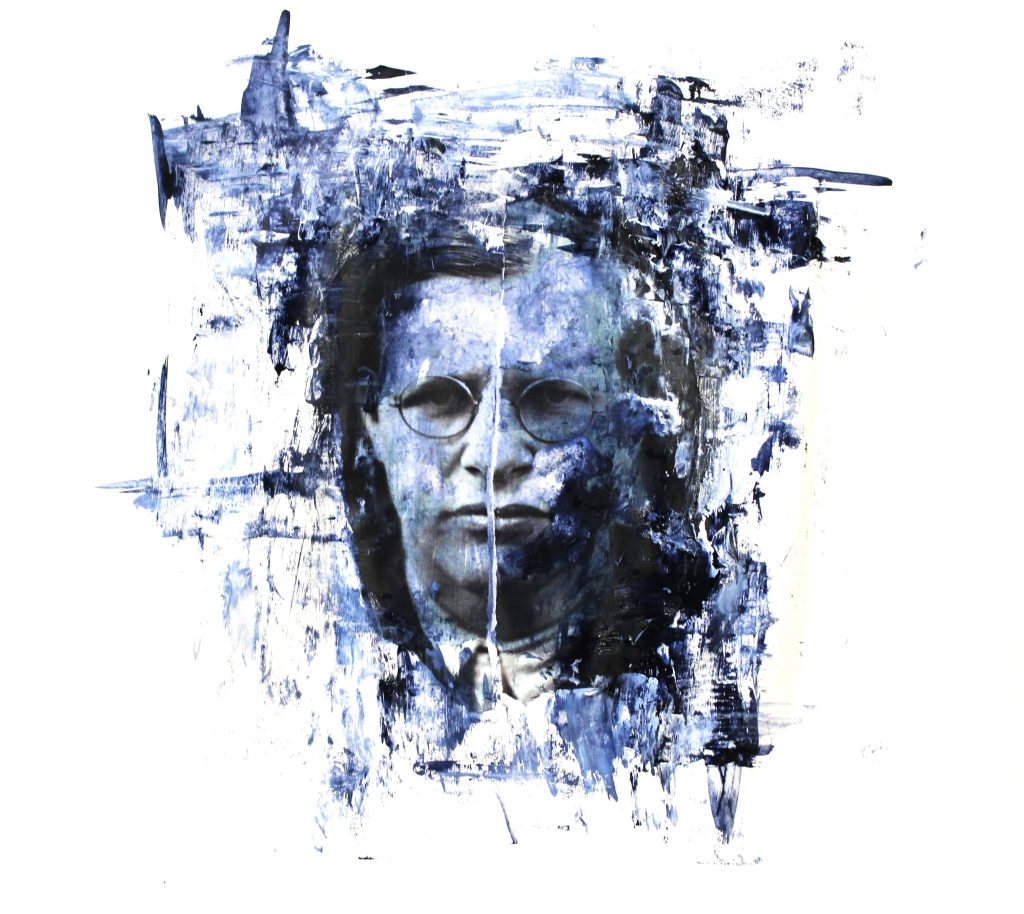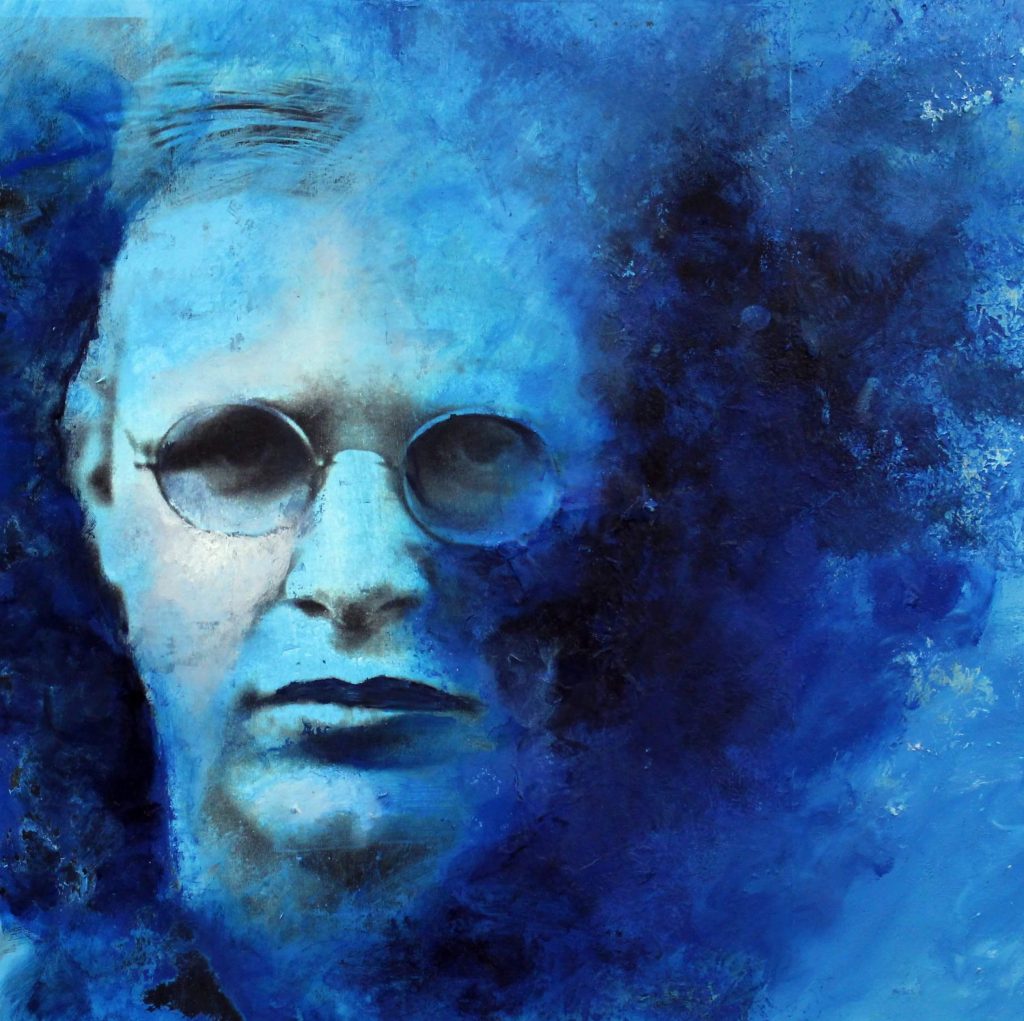Dear friends,
Last week, Dr. Mae Cannon and I shared a rich conversation about Dietrich Bonhoeffer’s wisdom for today’s traumas in Israel and Palestine. As I prepared for this discussion, I was struck again by just how much wisdom Bonhoeffer still has to teach us. I’m grateful to Churches for Middle East Peace and Evangelicals for Justice for hosting this event. The recording is available here.
Today is the 80th anniversary of Dietrich Bonhoeffer’s execution. Bonhoeffer was hanged by the Nazis in the Flössenburg concentration camp on April 9, 1945 at the age of 39. The official charge against him was “acts of subversion of military power.” Bonhoeffer earned this deadly honor by refusing to join the German military and assisting the resistance to Germany’s dictator Adolf Hitler.
To honor Bonhoeffer’s life and witness, I’m sharing the full remarks that I prepared for my conversation with Dr. Cannon. I hope these brief meditations on Bonhoeffer’s wisdom help expand your vision of God in our world and embolden your courage to resist dehumanization in our time.
Bonhoeffer’s Wisdom for Today’s Traumas
in Israel, Palestine, and Beyond
I’ve been asked to speak briefly about Dietrich Bonhoeffer’s wisdom for today’s traumas in Israel and Palestine. More particularly, I was asked, “What might Dietrich Bonhoeffer say to us about Israel’s treatment of the Palestinians?”
I want to begin by naming my deep grief for the abduction and murder of every human life – Palestinian, Israeli, and otherwise – since October 7, 2023. I also want to name my deep grief for the displacement, death, and destruction that Palestinians have suffered long before October 7th under the Israeli occupation. No words can express the terrible heartbreak and moral outrage of watching the Israeli military devastate Gaza. It has killed an estimated 50,000 Gazans, including over 15,000 children. It has also displaced around 2 million Gazans from their home and destroyed the majority of Gaza’s vital infrastructure.
I must begin by naming my sorrow and compassion for all who have suffered and are still suffering this atrocious violence.

Hatem Khaled/Reuters
While I was researching for my book Bonhoeffer’s New Beginning: Ethics after Devastation, I had the gift of studying every surviving word of Dietrich Bonhoeffer. Of course, Bonhoeffer was a Christian pastor and dissident theologian during Adolf Hitler’s genocide against the Jews in Germany and Europe. For his opposition to the genocidal ideology of Hitler and German fascism, Bonhoeffer was hanged in a concentration camp on April 9, 1945 – 80 years ago.

I do not claim to know exactly what Bonhoeffer would say to us today as we confront the traumas in Israel, Palestine, and our world today. But I believe we can discern precious wisdom from the way he responded to the atrocities and traumas of his own time, which can still speak to us today. In these brief remarks, I’m going to quote Bonhoeffer often and focus on his early works when Hitler was coming to power. (All page numbers refer to the Bonhoeffer Works in English.) My intention is for us to hear Bonhoeffer in his own voice as we witness the ongoing trauma of our time.
I believe Bonhoeffer would say many things to us today, but let me mention six.
1. Recognize Christ in the dehumanized other.
From start to finish, Bonhoeffer’s ethical vision was focused on the person of Jesus Christ. For Bonhoeffer, Jesus is the very center of our humanity and the revelation of God’s will for us today. In one of his earliest lectures, Bonhoeffer insisted,
“Christ can still speak to us concerning the ultimate, final, decisive matters [of our world].” (10:342)
Certainly, Israel’s devastation of Gaza is one of these decisive matters of our time. But the question is where we can see, hear, and meet Jesus in our world today. In 1928, Bonhoeffer made his answer clear:
“Jesus Christ, God himself, speaks to us from every human being… I am for you, you are for me, God’s claim.” (10:494-495).
Near the end of his life, Bonhoeffer wrote practically the same thing from his Nazi prison cell:
“Our relationship to God is a new life in ‘being there for others,’ through participation in the being of Jesus. The transcendent is not the infinite, unattainable task, but the neighbor within reach in any given situation. God in human form!” (8:501)
So, this was Bonhoeffer’s moral vision from start to finish: Jesus is present in every human being, in every one of our neighbors. And thus, every human bears sacred, inviolable worth. Each person is a temple of divine presence. Bonhoeffer preached and practiced this vision of human dignity based on Jesus’ teaching that Jesus himself is present with people that our world sees as “the least of these” (Matthew 25:31-46).
Bonhoeffer’s vision of universal human dignity led him to this countercultural conclusion already in 1928:
“Christianity preaches the infinite worth of that which is seemingly worthless and the infinite worthlessness of that which is seemingly so valued.” (10:354)
What our world sees as so precious — wealth, power, superior status – Christianity says is worthless. And what our world sees as worthless – degraded people, dehumanized people, suffering people who are hungry, grieving, and labeled as worthless enemies — these people authentic Christianity sees as infinitely precious. Jesus himself is present with these dehumanized, genocided people.
Thus, in a sermon from 1932, Bonhoeffer taught that,
“[Jesus is found among] you outcasts and outlaws, you victims of society, you men and women without work, you broken down and ruined, you lonely and abandoned, rape victims and those who suffer injustice, you who suffer in body and soul.” (11:445)
With these prophetic words, Bonhoeffer is calling us to a totally transfigured vision of humanity: the people we are tempted to see as as less, as unwanted, as unworthy, as worthless are precious to God.
This moral vision led Bonhoeffer to write the following words in 1942 soon before he was arrested by the German Gestapo:
“It remains an experience of incomparable value that we have for once learned to see the great events of world history from below, from the perspective of the outcasts, the suspects, the maltreated, the powerless, the oppressed and reviled, in short from the perspective of the suffering.” (8:52)
In many ways, it sounds like Bonhoeffer is describing Gaza and the West Bank today under Israeli bombardment and occupation.
And so I think Bonhoeffer would ask us today: Can we see Christ in the dehumanized, suffering people of Palestine? Do we consider them as equally precious as our Israeli neighbors and to ourselves?
I believe we hear a powerful echo of Bonhoeffer’s voice in Rev. Munther Isaac’s claim today that “Christ is in the rubble of Gaza” and that Gaza has become a “moral compass” for our time.

Art by Peter Kline
2. Reject violence.
Second, Bonhoeffer would call us to reject violence. If every human life bears this radical divine worth, then destroying human life cannot be the solution to our problems. Violence can only deepen our problems.
In fact, the othering, eliminationist mindset of violence is at the root of our problem. It says, “If we could just get rid of those people, then we would be safe and at peace.” But this is the mindset that led to the murder of Jesus, Germany’s genocide of the Jewish people that Bonhoeffer opposed, and now Israel’s genocide against the people of Gaza today.
In a sermon in 1934 just a year after Hitler came to power, Bonhoeffer took a clear stand against violence. He said that “power and violence” had become the “ultimate ideals of humanity” in his time. Against this, Bonhoeffer boldly declared,
“Christianity stands or falls with its revolutionary protest against violence, arbitrariness and pride of power and with its [defense] for the weak. – I feel that Christianity is rather doing too little in showing these points than doing too much. Christianity has adjusted itself much too easily to the worship of power. It should give much more offense, more shock to the world, than it is doing. Christianity should take a more definite stand for the weak than to consider the potential moral right of the strong.” (13:402)
We need to hear Bonhoeffer’s prophetic words today: “Christianity stands or falls with its revolutionary protest against violence, arbitrariness and pride of power and with its defense for the weak.”
The rejection of violence as a means of resolving our conflicts was Bonhoeffer’s consistent message. In 1932, Bonhoeffer declared to the World Alliance,
“The order of international peace is God’s commandment for us today… Today’s war destroys soul and body… there is no way for us to understand war as God’s order of preservation and therefore as God’s commandment… war needs to be idealized and idolatrized in order to live, [so] today’s war, the next war, must be condemned by the church… we must face the next war with all the power of resistance, rejection, condemnation… We should not balk here at using the word ‘pacifism’ [opposition to all violence].” (11:364, 367)
In 1936, Bonhoeffer wrote a letter to his friend Elisabeth Zinn about his discovery of Jesus, the Sermon on the Mount, and then Hitler’s rise to power in 1933. Bonhoeffer wrote to her,
“Christian pacifism…suddenly came into focus as something utterly self-evident. And thus it went, step-by-step. I no longer saw or thought about anything else.” (14:134)
Jesus’ creative nonviolent resistance to evil became so important to Bonhoeffer that he planned to travel to India to study it with Gandhi.
Already in 1934-1935, Bonhoeffer looked at the Christianity of his culture and he called it a “church-not-worthy-to-be church” (13:189). In fact, Bonhoeffer called Christians to “protest against every form of church that does not honor” truth and human dignity “above all.” It had fallen into “the worship of power.”
On this basis, I believe that Bonhoeffer would say to us today: bombing Gaza’s homes, schools, hospitals, and commercial centers is a grave moral evil in the eyes of God. Killing over 50,000 people in the name of self-defense is a grave moral evil in the eyes of God. Unleashing a tidal wave of terror, grief, and displacement on two million people is a grave moral evil in the eyes of God. It cannot produce peace; it can only produce more violence, grief, and extremism.
In fact, I believe Bonhoeffer would say that “Christianity stands or falls with its revolutionary protest” against this violence.
3. Repent.
Third, Bonhoeffer would call followers of Jesus and people of goodwill to repent for supporting this violence or remaining silent in the face of it. In his book Ethics, which he was working on when he was arrested in 1943, Bonhoeffer wrote this confession for the church of his time:
“The church confesses that it has witnessed the arbitrary use of brutal force, the suffering in body and soul of countless innocent people, that it has witnessed oppression, hatred, and murder without raising its voice for the victims and without finding ways of rushing to help them. It has become guilty of the lives of the weakest and most defenseless brothers and sisters of Jesus Christ.” (6:139)
I expect that Bonhoeffer would invite all of us today to publicly repent and confess our failure to cry out against “the suffering in body and soul of countless innocent” Palestinian neighbors. We have failed to protest the devastating violence that the Israeli government has inflicted on them, which also further endangers our Israeli neighbors. We have failed to weep with their weeping, to suffer with their suffering. Our Christianity has fallen into the worship of violence and pride of power instead of the crucified Jesus. We have seen Israeli lives as more valuable than Palestinian lives and dishonored Christ in them all.
Repentance is required to move forward.
4. Re-educate ourselves.
Fourth, I believe that Bonhoeffer would urge us to re-educate ourselves in the ethics of Jesus. Whether we talk about white supremacy, Christian nationalism, or various forms of Zionism, these ideologies affirm that some lives matter more than others. Bonhoeffer would call us to rediscover the healing, liberating vision of the precious, equal worth of every human life and thus to struggle for equal dignity, security, and flourishing for all of us.
In his own time, Bonhoeffer helped organize the Confessing Church and the Barmen Declaration, which stood against the official German church that had accepted Ayran supremacy and authoritarianism. Bonhoeffer led an underground theology school in order to train dissident pastors who would resist the dehumanization and domination of others and preach the gospel of Jesus for “the least of these.” Bonhoeffer traveled throughout Europe to speak and raise awareness about the terrible evils that were unfolding in Germany. He called on Christian leaders to condemn German dictatorship and dehumanization.
So, today, I expect that Bonhoeffer would call us to make public statements condemning the Israeli government’s devastation of Gaza. He would call us to organize alternative theological education that resists Christian Zionism and other ideologies that see some people as more chosen and more important to God than others. Bonhoeffer would call us to build networks among people of faith to cry out on behalf of the people of Palestine, the unreleased hostages (both Israeli and Palestinian), and all the people of the land.
5. Listen to others in pain, especially Palestinians.
Fifth, I believe Bonhoeffer would urge us to listen deeply and compassionately to all who have suffered in this terrible war. But he would likely urge us to give special attention to our Palestinian neighbors whose voices have been given fewer platforms. In his spiritual classic Life Together, Bonhoeffer wrote,
“Listening can be a greater service than speaking. Many people seek a sympathetic ear and do not find it among Christians, because these Christians are talking even when they should be listening. But Christians who can no longer listen to one another will soon no longer be listening to God either; they will always be talking even in the presence of God. The death of the spiritual life starts here, and in the end there is nothing left but empty spiritual chatter and clerical condescension which chokes on pious words. Those who cannot listen long and patiently will always be talking past others, and finally no longer will even notice it. Those who think their time is too precious to spend listening will never really have time for God and others, but only for themselves and for their own words and plans.” (5:98)
I have heard many Palestinians express a similar frustration with western Christians today. Are we listening, especially to our Palestinian neighbors?
6. Bless with radical hope.
Finally, I believe Bonhoeffer would call us to speak a word of radical hope for all who are suffering – Israelis, Palestinians, and all people. From his Nazi prison cell, Bonhoeffer wrote,
“Blessing means laying one’s hand on something and saying: Despite everything, you belong to God. This is what we do with the world that inflicts such suffering on us.” (16:632)
If God is present in every human being as Bonhoeffer preached, then, “despite everything, [we] belong to God.” The children in the rubble of Gaza belong to God. The families displaced from their homes belong to God. The hostages belong to God. The member of Hamas belongs to God. The member of the Israeli Defense Force belongs to God. Every one of the 50,000 murdered Gazans, the 1,200 Israelis and others murdered on October 7th, and all of us belong to God.
Here Bonhoeffer would remind us: our responsibility is not to save the world but to bear witness to God’s will for our world. And God’s will for our world is revealed in Jesus and our universal belonging, our universal blessing.
And so our final confession is that we belong to God, and we belong together, and we are called to work for a world in which this belonging is real for all of us. And so we reject everything that separates us into “superior” and “inferior,” whether an ideology such as Zionism or a military action such as a the siege of Gaza. Our motivation is Jesus’ command to love our neighbors as ourselves.
As we remember the 80th anniversary of Dietrich Bonhoeffer’s execution, I pray that we can learn to open our eyes and see the precious value of Jesus in each person, especially our Palestinian neighbors and those we label “enemies.” And so, may we learn to extend our hand to one another and confess with Bonhoeffer, “Despite everything, we belong to God.”
To contact your representatives and advocate for a ceasefire in the Israel-Hamas war, please follow these simple steps provided by my friends at Telos.




